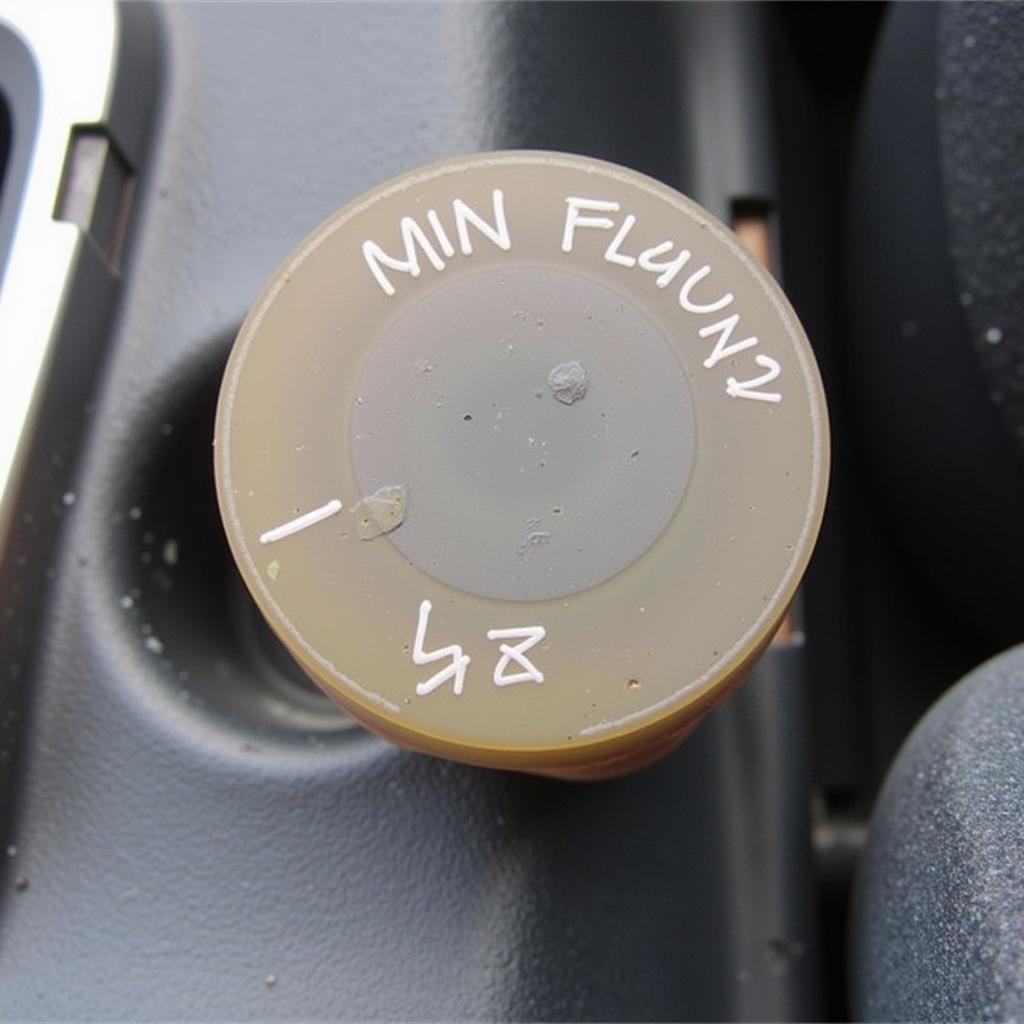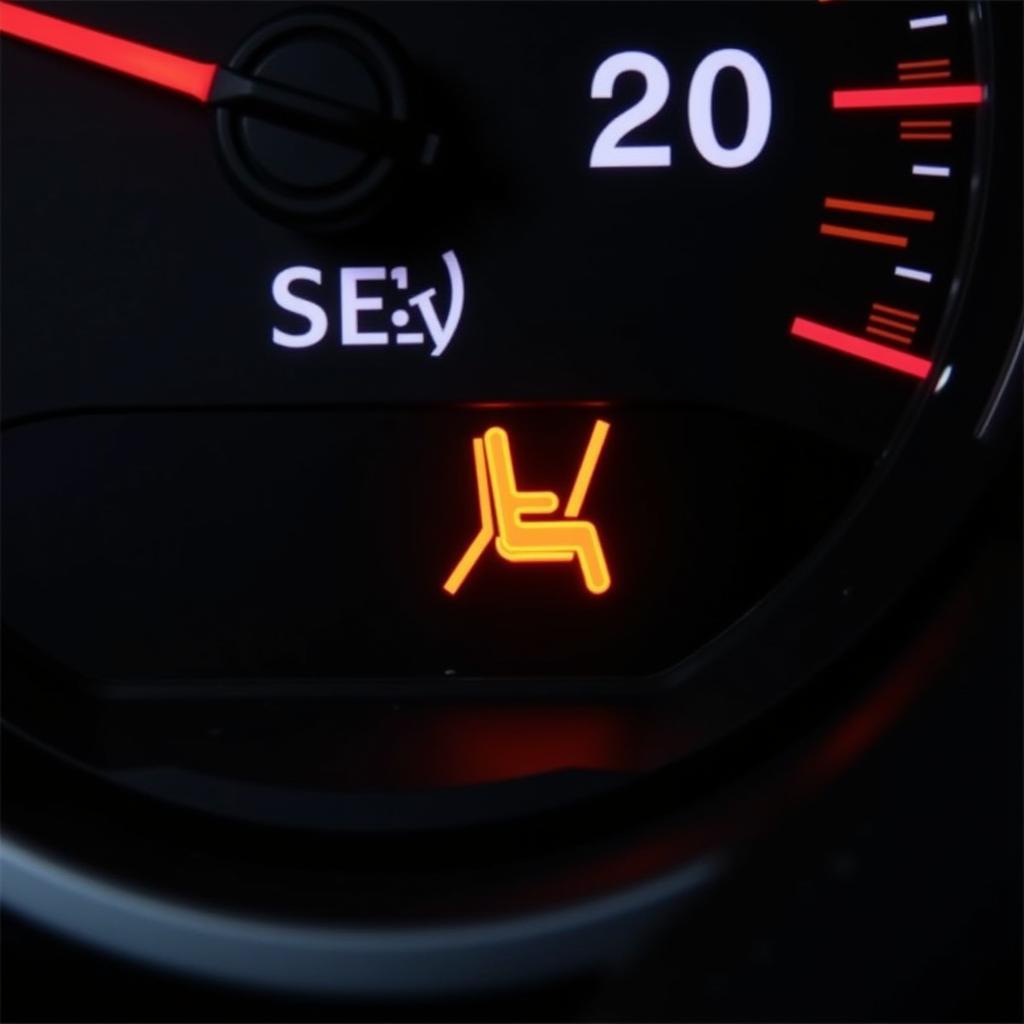The dreaded brake pad warning light on your Mini Cooper dashboard flashing? Don’t panic! While it’s never a good sign to see a warning light, understanding what it means and how to address it can save you time, money, and potentially prevent a dangerous situation. This comprehensive guide will walk you through the common causes of a brake pads warning light on your Mini Cooper, how to diagnose the issue, and what steps to take to rectify the problem.
Understanding Your Mini Cooper’s Brake Pad Warning Light
The brake pad warning light, often a red circle with an exclamation mark inside, is your Mini Cooper’s way of telling you something is wrong with the braking system. This system relies on the brake pads applying pressure to the brake rotors to slow down or stop your vehicle. As you drive, these pads wear down gradually. When they reach a certain level of wear, the brake pad sensor, a small metal tab embedded within the brake pad, comes into contact with the brake rotor. This contact triggers the warning light on your dashboard, signaling that it’s time to replace your brake pads.
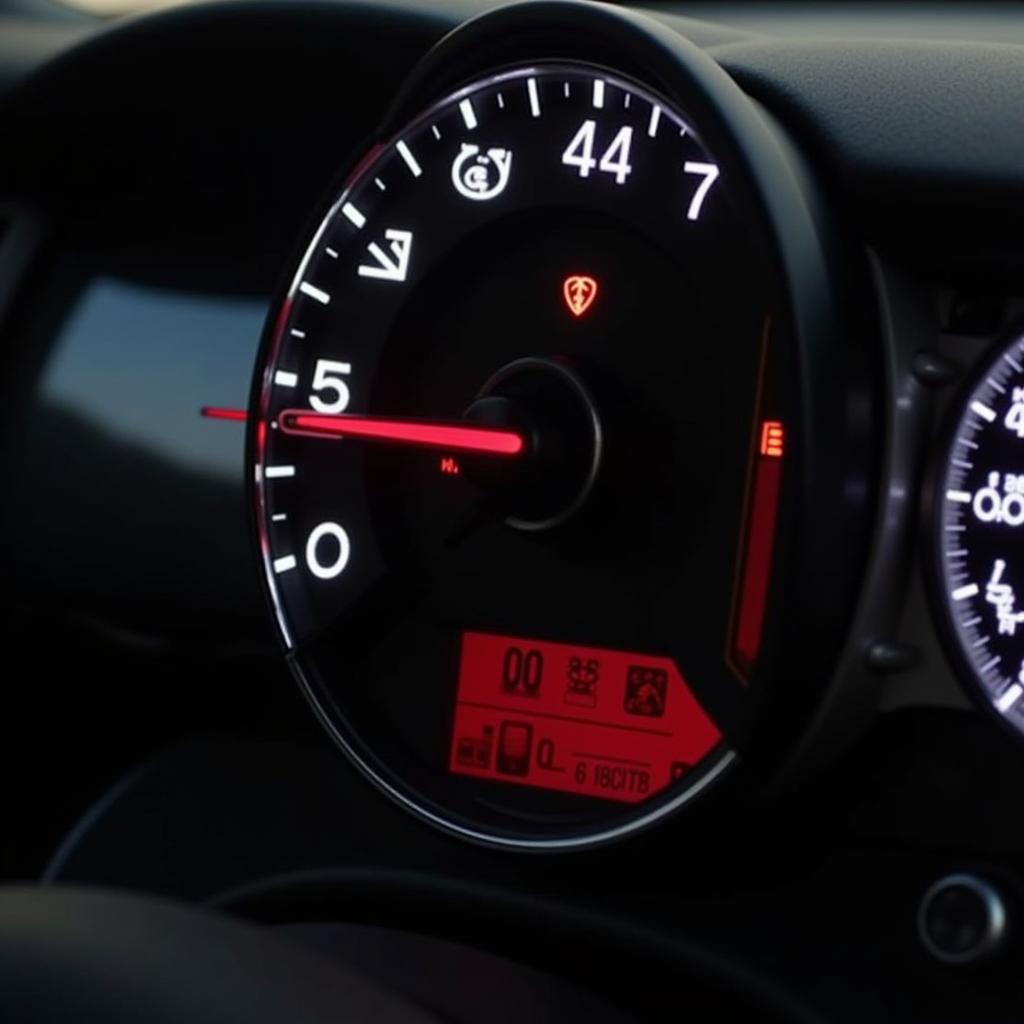 Mini Cooper Dashboard Displaying Brake Pad Warning Light
Mini Cooper Dashboard Displaying Brake Pad Warning Light
Common Causes of a Brake Pads Warning Light
While worn brake pads are the most frequent culprit, several other factors can trigger the brake pad warning light on your Mini Cooper:
- Worn Brake Pads: This is the most common reason for the light to come on. Over time, brake pads wear down with use, and once they reach a certain thickness, the sensor triggers the warning light.
- Damaged Brake Pad Sensor: The sensor itself can become damaged or worn out, leading to a false warning. A visual inspection can typically determine if this is the case.
- Low Brake Fluid: Brake fluid is crucial for transmitting the force from your foot on the brake pedal to the brake calipers, which then press the brake pads against the rotors. If there’s a leak in the system and the brake fluid level is low, it can trigger the warning light.
- Faulty ABS System: While less common, a problem with your Anti-lock Braking System (ABS) can also trigger the brake pad warning light. This is usually accompanied by other warning lights on your dashboard.
Diagnosing the Problem: What to Check First
-
Consult Your Owner’s Manual: Before doing anything else, refer to your Mini Cooper’s owner’s manual. It will provide specific information about your vehicle’s warning lights and recommended actions.
-
Visually Inspect Your Brake Pads: If you’re comfortable doing so, safely jack up your Mini Cooper and remove a wheel to inspect the brake pads. You should see a significant amount of pad material remaining. If the pad material is thin (less than ¼ inch) or you see metal-on-metal contact, it’s time for a replacement.
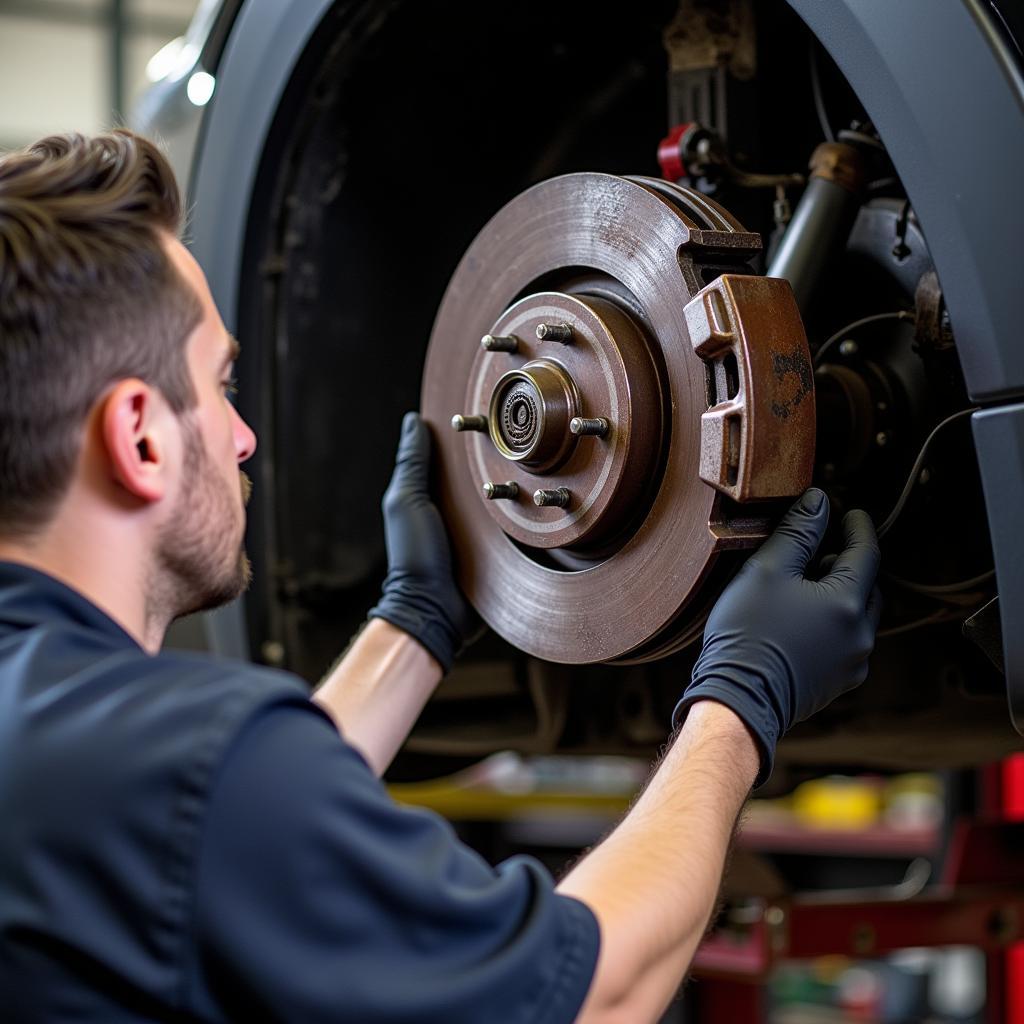 Worn Brake Pads on Mini Cooper
Worn Brake Pads on Mini Cooper
- Check Your Brake Fluid Level: Locate the brake fluid reservoir under the hood (refer to your owner’s manual for the exact location). The reservoir will have a “Min” and “Max” marking. Ensure the brake fluid level is within these markings.
When to Seek Professional Help
If you’re not comfortable inspecting your Mini Cooper’s braking system or suspect a more complex issue than just worn brake pads, it’s best to seek professional help from a qualified mechanic.
Seek professional help immediately if:
- You notice any brake fluid leaks.
- Your brake pedal feels spongy or goes all the way to the floor.
- You hear grinding or screeching noises when braking.
- Your Mini Cooper pulls to one side when braking.
- You see other warning lights illuminated on your dashboard along with the brake pad warning light.
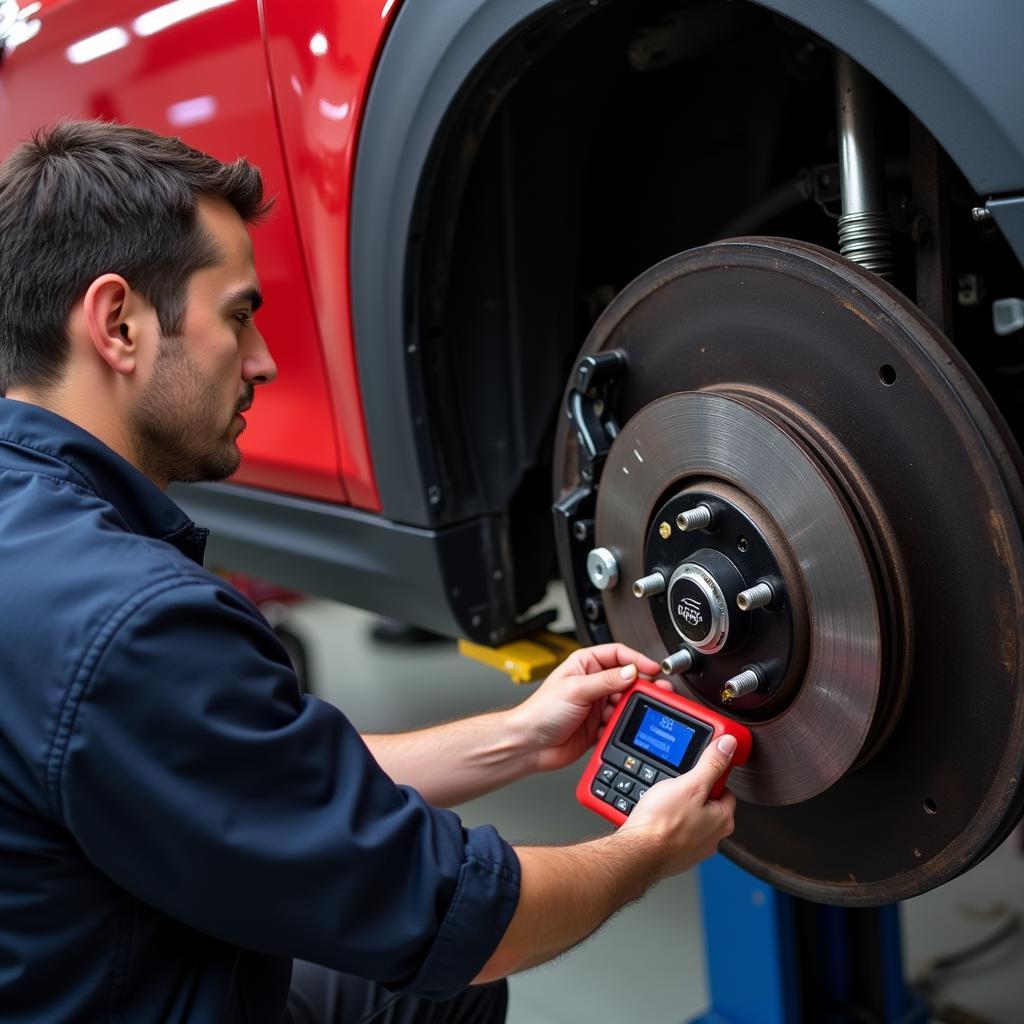 Mechanic Diagnosing Mini Cooper Brake System
Mechanic Diagnosing Mini Cooper Brake System
Can I Still Drive My Mini Cooper With the Brake Pad Warning Light On?
While you might be tempted to continue driving with the brake pad warning light on, it’s highly discouraged. Continuing to drive with worn brake pads can lead to:
- Reduced Braking Efficiency: Your Mini Cooper will take a longer distance to come to a complete stop.
- Damage to Rotors: Worn brake pads can damage the brake rotors, leading to costly repairs.
- Brake Failure: In extreme cases, ignoring the warning light can lead to complete brake failure, putting you and others at risk.
Brake Pad Replacement and Cost
The cost of replacing brake pads on a Mini Cooper can vary depending on the model year, the specific type of brake pads used, and labor costs in your area. However, it’s a routine maintenance procedure that’s significantly less expensive than the potential consequences of ignoring the warning light.
Tips to Prolong the Life of Your Brake Pads
- Smooth Braking: Avoid hard braking whenever possible. Gradual braking puts less stress on your brake pads.
- Lighten Your Load: The heavier your Mini Cooper, the harder your brakes have to work.
- Regular Maintenance: Have your brake system inspected regularly by a qualified mechanic as part of your routine maintenance schedule.
Frequently Asked Questions
Q: Can I replace just one brake pad?
A: It’s recommended to replace brake pads in pairs (both on the same axle) to ensure even braking performance.
Q: How often should I replace my Mini Cooper’s brake pads?
A: Brake pad lifespan varies depending on driving habits and conditions. However, it’s generally recommended to have them inspected every 12,000 miles and replaced between 30,000 to 70,000 miles.
Q: Can aftermarket brake pads affect my Mini Cooper’s braking performance?
A: Yes, the quality of brake pads can impact braking performance. It’s crucial to choose high-quality brake pads from reputable brands.
Taking Action: Ensuring Your Safety on the Road
A flashing brake pad warning light on your Mini Cooper should never be ignored. By understanding the common causes, knowing what to check, and acting promptly, you can address the issue effectively and keep your Mini Cooper running smoothly and safely. If you’re unsure about any aspect of your brake system or notice any unusual behavior, don’t hesitate to seek help from a qualified mechanic. Your safety on the road is paramount.

